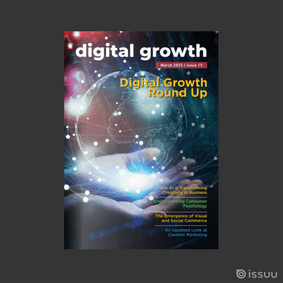
The direct-to-consumer (D2C) business model has experienced a steady rise for several years now, and this trend appears likely to continue in 2023. With the growing prevalence of online commerce like e-commerce platforms or social media shopping functionality, it's become easier for businesses to engage directly with the consumer.
What is D2C?
D2C allows businesses to sell their product to the consumer without the involvement of any kind of middleman, be that a distributor or retailer, etc. This model allows businesses to nurture customer relations and curate the customer experience, meaning the brand can communicate its message without interference from any third party that may distort it.
The D2C model typically requires businesses to establish an online presence, as this is the most accessible way to reach many consumers despite location if they aim to sell their product widely. Let's take a look at what D2C means for businesses and customers as it continues to grow as a form of commercial exchange, and where this trend will take us.
D2C in 2023
Since social media has become a key component in online commerce, D2C businesses must ensure that their online presence is strong. Both Facebook and Instagram have commerce functionality, making these platforms a viable choice for small businesses looking to move their products or services into an e-commerce environment.
Not only do social platforms allow direct selling through their e-commerce capabilities, but in terms of digital marketing – another crucial element for B2C businesses – these channels allow businesses to communicate with and market to their target audience directly. Responding to direct messages from customers, as well as interacting with your audience via live feeds, polls, and Q&As makes your brand identity far more relatable and “human.” Being able to communicate directly with a brand fosters a close relationship with a customer or potential customer, and today’s consumer is inclined towards that level of care and consideration over dealing with a faceless company. In the D2C model, social media is vital.
Curating and managing social media platforms goes hand in hand with the overall importance of customer experience as another component of the D2C model. As mentioned, businesses in this space have complete control over their customers’ experience with the brand, which is another reason why D2C is so attractive. What is important to note is that this also comes with a certain level of responsibility. D2C is growing in popularity, meaning competition is also growing and businesses must ensure they stand out. You have to make sure that all aspects of the customer experience are optimised, from engagement and customer service to easy-to-use, error-free online shopping processes. A good customer experience means a good review.
Given that the relationship with the customer becomes more front and centre with B2C, businesses have to make sure they place their focus where customer concerns and interests lie. Sustainable practices massively inform consumer decisions in today’s market, with customers preferring to engage with businesses that consider environmental concerns and ethical production. Businesses employing the D2C model need to consider these issues when planning their strategies and adjust accordingly. By this token, data management is another integral part of D2C. Businesses must track and monitor their buyer’s persona in order to stay in line with the personal considerations of their potential customer. This means many D2C businesses will be likely to utilise CRM tools like HubSpot as a way to optimise their channels while keeping their costs and processes streamlined.
Direct-to-consumer business involves many fine details, and each business has to identify and prioritise its focus points. It is safe to say that customer experience and social media utilisation are among some of the top priorities any business migrating to a D2C model must consider. It is important to move with the ebb and flow of consumer trends in order to stay ahead of the game. Overall, D2C is here to stay.
At NEXA, we provide our clients with the right tools and strategies to optimise their D2C business. Through performance marketing, web design and development, content creation, and social media management, we deliver a fully integrated suite of services that help businesses of all sizes and stages of growth. Get in touch with us to learn more about how we can help scale your D2C business.
%20(1).png?width=2701&height=607&name=BRC_NEXA_LOGO_BLACK%20%26%20VIOLET%20(1)%20(1).png)
%20(1).png?width=2701&height=607&name=BRC_NEXA_LOGO_WHITE%20(2)%20(1).png)















Comments